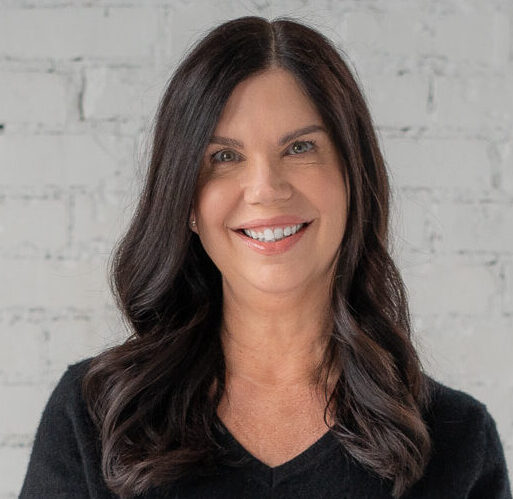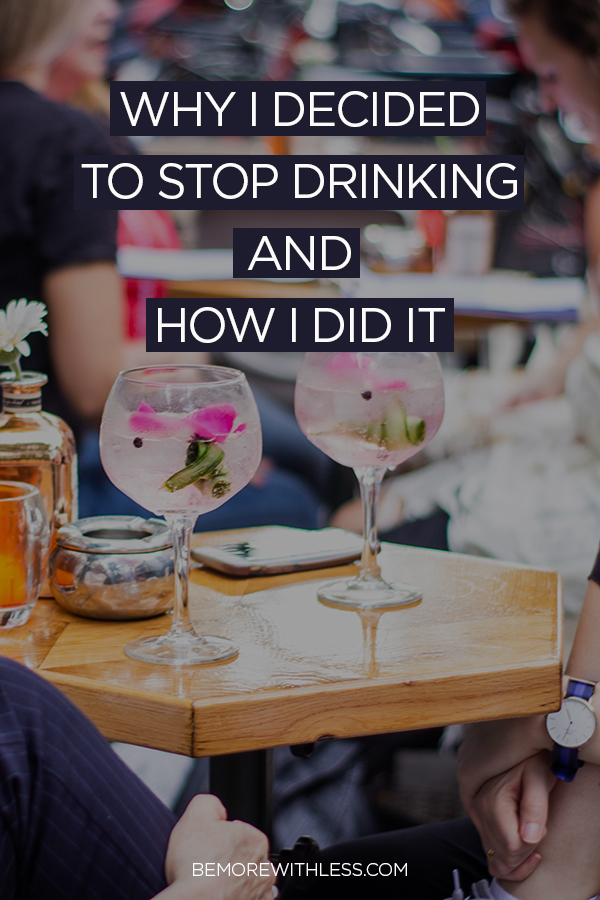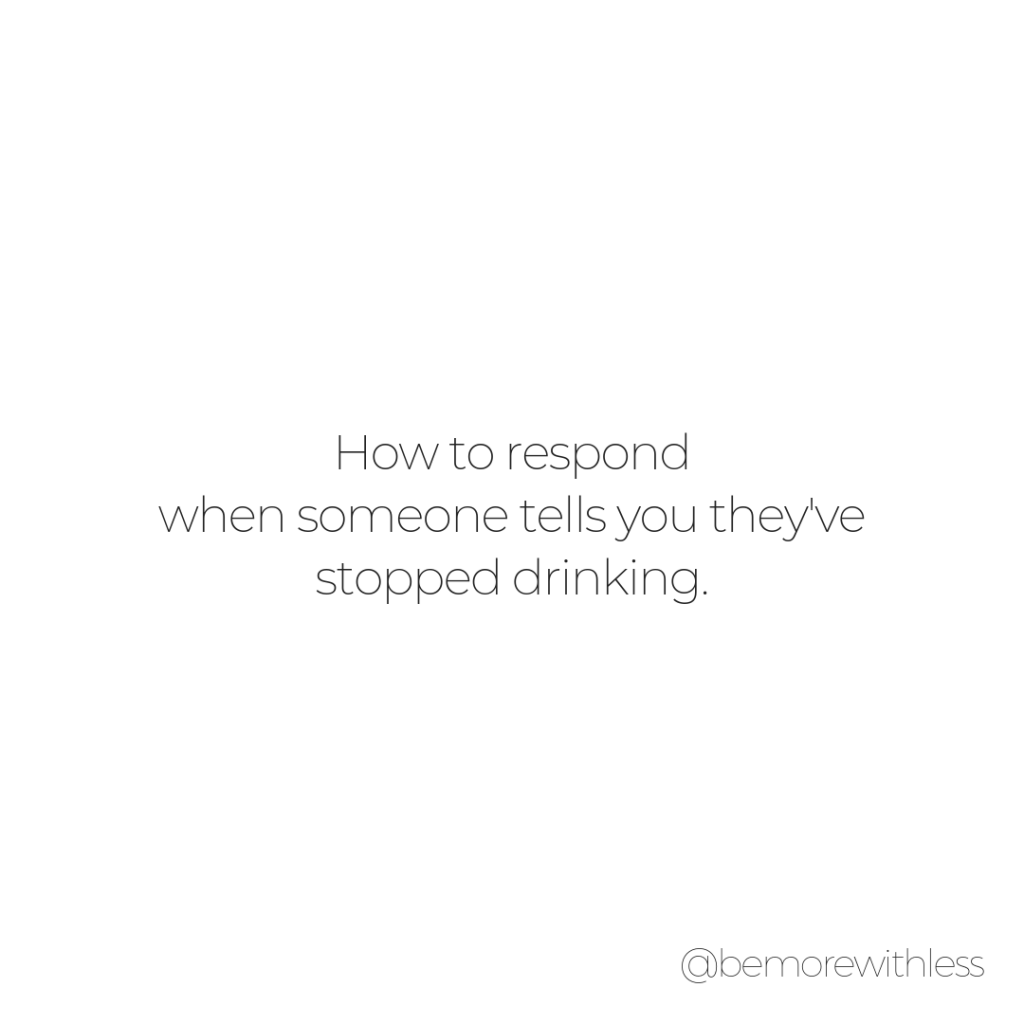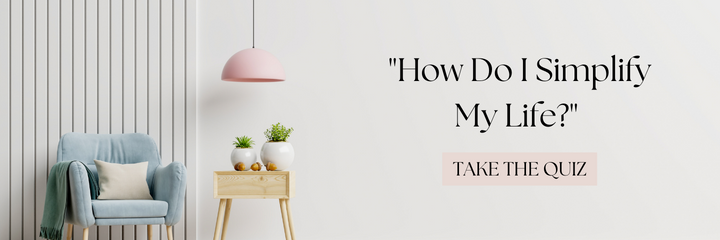You probably didn’t expect an article about how to stop drinking alcohol when you signed up for articles about simplicity but stay with me.
Simplicity and sobriety have more in common than you think (and I’m not here to convince you to stop drinking). Even if sobriety is not for you or you don’t intend to stop drinking or you don’t drink at all, I think you’ll find value here.
My relationship with alcohol
I’ve questioned my drinking, I’ve managed my drinking. I’ve enjoyed my drinking and I’ve hated my drinking. Clearly, alcohol took up a lot of space in my mind and my life — says the woman who enjoys freeing up space in her mind and her life.
Long story short …
I started drinking when I was a teenager and didn’t stop until earlier this year. I (mostly) managed alcohol well except for a few times a year, often when traveling or getting together with friends or family when I didn’t. I enjoyed drinking and occasionally I abused alcohol but I wasn’t addicted to it. I could easily quit drinking for a month or more at a time. The older I got the harder drinking became. Just a little bit affected my sleeping and made me feel crappy the next day. I noticed it affected my moods more too.
Here are 7 other things I noticed when I stopped drinking.
The longer version …
Thinking about quitting was hard for me. Quitting wasn’t. That isn’t to diminish how hard it might be for anyone else. If you want to stop drinking but quitting seems hard or even impossible, remember that drinking probably feels hard sometimes too. We can do hard things (more recommendations on how below).
When I decided to take a break from drinking on January 20, 2019, I didn’t know that weekend I’d had my last glass of wine, my last hangover and that I would end a decades long journey of managing alcohol.
I wrote about my concerns about alcohol in 2011 and came to the conclusion that I wasn’t addicted/didn’t have a problem/wasn’t an alcoholic. If I could go back and send a message to the me who wrote those words and thought those thoughts, I would have asked her, “Is that a good enough reason to keep drinking?” and “Is alcohol contributing to the full, healthy, intentional life you say you want?”
For someone as concerned with health and wellbeing as I am, I’m surprised I didn’t stop when I read this article about a study that shows there are no safe levels of alcohol. It’s literally a poison. Anyone who’s experienced a hangover understands this. You feel poisoned because you are. I wanted to hold on to those stories about how one glass of wine a day is good for you (and other stories I told myself about alcohol), but honestly, how often did I ever have just one glass?
Quitting was easy but thinking about it was not
In my experience, the fear of stopping was much harder than actually stopping. The times I considered quitting, I shut it down because I couldn’t imagine my future without alcohol. What would vacations look like, or dinner with friends and family? What about holidays or other special occasions that I had always enthusiastically celebrated with champagne?
I was even worried that if I quit drinking it would change the dynamic of my marriage. When we went out to dinner, we enjoyed wine. When we got together with friends and family we liked to drink. When we traveled to see friends or went to the beach, we looked forward to the alcohol infused celebrating and enjoying. When I quit, I didn’t expect my husband to quit or ask him to quit. He didn’t quit, but he hardly drinks at all anymore. I’ve asked him why and he says it’s not fun to drink alone and he feels better not drinking. The truth is even though we usually had fun drinking together, we are much more connected now that we aren’t drinking.
I didn’t really care what people would think
This is a benefit of making changes later in life. Most of the time when I think people are thinking deeply about me they aren’t so I’ve stopped letting what others may or may not think impact personal decisions I make about my life. Chances are, your relationship with alcohol is very personal. Mine was.
There are some things that are only your business. Why you choose not to drink falls into this category. However, it’s normal for people to think that when you aren’t drinking alcohol, you have to tell everyone why. When you decline a drink, they may wonder, and often ask out loud one or more of the following questions …
- Are you pregnant?
- Don’t you want to have fun?
- Do you have a problem with alcohol?
- Are you dieting?
- What’s wrong with you?
People may push too (I like Melissa’s recommendation shown under #4 in this article). My sister told me when she stopped drinking, friends often asked, “Can’t you just have one? Just a sip? Just for the cheer or the toast?” Don’t let that discourage you. People want you to drink with them so they feel better about their own drinking. Shouldn’t we support each other in making healthy habit changes even when they challenge our own habits?
Why is it that when someone says they’ve quit smoking, or eating sugar, or just about anything else, we celebrate them, but when they tell us they quit drinking, we question them?
How to respond when someone tells you they’ve stopped drinking:
- Well done!
- That’s amazing!
- Tell me how I can support you!
How to stop drinking alcohol (or at least this is how I did it)
As I mentioned, I didn’t seek out a recovery program. When I took a break from drinking, I didn’t think I was done for good. On January 20, 2019 I decided to stop drinking for a while. I didn’t have a time frame in mind — just for a while. At the end of March, I went to Amsterdam and Paris. It had never crossed my mind that I would go to Europe and not enjoy a glass (or many glasses) of wine or champagne. But I didn’t. Not because I couldn’t, but because I didn’t want to.
After 100 days without alcohol, I started to consider what it would look like to never drink again. That idea always scared me before but not this time. In fact, after hundreds of days of not drinking, I haven’t craved or considered having a drink since I stopped. Not one time. I know it’s not like that for everyone.
Here are some of the things that have contributed to my simple sobriety
Minimalism. I’ve been simplifying my life since 2006. The changes I made have dramatically changed how I live, how I feel about myself, what I think about everything (even what I think about my thoughts) and how I deal with the fear of change and uncertainty. I started my simplicity journey to live well with multiple sclerosis but it’s become so much more than that. For me, minimalism is removing the things that remove you from your life. Alcohol removed me from my life. So I removed it.
Transcendental Meditation. I’ve been meditating on and off for more than a decade. I’ve done guided meditation, mindfulness practices and other types of meditating. TM is unlike any other form of meditation I’ve ever done. I meditate for 20 minutes twice a day and look forward to it. I started practicing in March and I believe it made it easier for me to stop drinking alcohol.
Whole 30. I’ve done several rounds of Whole 30 in the past giving up sugar, grains, dairy, legumes and alcohol for 30 days at a time and it was sugar, not alcohol that I missed the most. That gave me some confidence when it was time to let go of drinking for good. Maybe all of those times I craved a drink, I was really craving sugar.
Books. I’ve read lots of books in the addiction/sobriety genre but the one that made the biggest difference for me was This Naked Mind: Control Alcohol, Find Freedom, Discover Happiness & Change Your Life by Annie Grace. It’s also helped me to read books like Loving What Is: Four Questions That Can Change Your Life by Byron Katie.
Apps. Like anything, the best apps to stop drinking alcohol are the ones that work best for you. I use Nomo to keep track of how many days it’s been since I stopped.
Social media. My Instagram feed is full of sober women who have inspired my sober curiosity. People like …
Constant inspiration. I’m open to inspiration about being sober and staying sober. Even though it feels easy now, I know that might change. Lately I’ve been inspired by this podcast episode by Kate Northrup and this article by Brené Brown. I’m really looking forward to reading Quit Like a Woman: The Radical Choice to Not Drink in a Culture Obsessed with Alcohol by Holly Whitaker. Bex’s article, Am I Drinking Too Much? got me thinking too.
Whenever I make a big change, I surround myself with like-hearted people (in real life and online) and this change was no different.
My sister. My sister quit drinking almost a year before I did and her journey inspired me. She used to be one of my favorite people to drink with and now she is one of my favorite people to not drink with.
My thoughts on stopping (if you want them)
You might be thinking, “I just want to create a capsule wardrobe” so I understand if this isn’t your thing today.
I’m such a fan of the Sober Curious movement because it’s an invitation for any of us who are interested in questioning our relationship with alcohol without the secrecy, fear and guilt that has always been associated with such questioning. It’s permission to consider living differently without labeling ourselves.
Author and Sobriety Evangelist, Holly Whitaker says, “The label Alcoholic and the “disease” alcoholism confuses and muddies. It keeps us focused on a label and a construct and distracts us from the REAL problem at hand, which is our individual relationship with alcohol. We should just be able to ask ourselves this simple question and honestly so: Does alcohol negatively impact our lives? And if so should we take steps to address it? Without the fear of having to accept a new identity. Without the fear of having to accept that we might be different. Without the fear that we might have an incurable disease.”
Here’s how I feel about the words alcoholic and alcoholism. If it serves you to use them, do. It it doesn’t, don’t.
When it comes to sobriety, do what is best for you
If you don’t drink or you do drink and feel good about the role alcohol plays in your life, I love you, carry on.
If you drink and are questioning the value drinking adds to your life, I love you and recommend reading This Naked Mind by Annie Grace. I also suggest a break. Try 30 – 100 days without alcohol and see how it feels. (Note: 30 days was never enough for me to see the value in quitting completely. I didn’t know that I’d continue to feel better and better both physically and mentally.) Make decisions based on how things are, not on how you think they will be.
If you drink and know it’s time to stop but think it will be too hard, I love you and encourage you to seek help. What recovery looks like for you is up to you. It looks different for everyone. A traditional approach like Alcoholics Anonymous might be for you, or another group may be a may be a better fit. Here’s a great list of options to help with sobriety. There isn’t one right way to do it. Find your own way and don’t ever feel like you have to explain or defend it.
Quitting alcohol has simplified my life in many ways and all the stories I told myself about how essential alcohol was in my life were lies.
You may not have expected an article about sobriety on a blog about simplicity but the connection between the two is undeniable. Life is simpler, better without alcohol.



